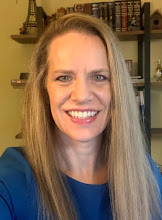In Leyla’s home town of Bahir Dar, we took an eventful ride across Lake Tana and saw orphan children being cared for by the monks and the village. We got a gut wrenching sense of what life is like for those without a family. Both of these sets of children are “fortunate” within the context of where they live. They have adults who care for them and a community structure although from our view their path offers much less than what we would want for our children.
That evening, we returned to our hotel exhausted by both the activities and emotions of the day. Being in my daughter’s hometown and processing so much beauty beside so much deprivation made my head spin and my heart vacillate between soaring and sinking.
The hotel was not what we hoped for but there was little we could do to change it. So we made due with two small non adjoining rooms. Michael stayed in one with our two sons and I stayed in the other with Leyla. I gratefully lay down on the bed and was insistently asleep.
I was abruptly awoken from my deep slumber in the pitch black of night. I could feel hands shaking my shoulders. Michael's voice had the edge of panic to it, “It’s Dimitri. He’s sick. . . really sick.” I instantly sat up although cobwebs still clung to my brain. I followed Michael whose stricken look cut me to the core. When we entered the room he shared with the boys, the stench was overpowering. My dear first son was in the shower shaking violently.
Dimitri was uncontrollably sick in a way I had never seen. He looked so frightened and vulnerable, nothing like the confident, funny teen of the daylight hours. I very badly wanted to scoop him up like I did when he was a baby and find a way to make it all better. I swallowed the bitter bile of helplessness that threatened and focused on what we needed to do - get him ready to go immediately to a local hospital. I stayed behind with Damian and Leyla.
Michael went downstairs and one of the hotel staff got them a cab. When he returned, he outlined what had happened at the hospital. Dimitri was examined, tested for malaria, given an antibiotic shot and some medicine to take with him. The total bill for the cabs, emergency room, doctor’s exam, shot and medicine was less than $38 --another reminder of how far we were from our normal.
Michael brought Dimitri back to my room since the other room was uninhabitable. The three kids and I piled into the small 2 beds to see if we could get some rest. The next morning we were going to visit Leyla’s orphanage so it was a big day. Dimitri kept saying, “I’m sorry. I’m so sorry.” My heart went out to him. As I stroked his sweaty forehead, I told him to focus on getting better.
We had no space in our small room for Michael’s 6’2” frame. He went downstairs to look for a place to lie down. He told me in the morning the hotel staff found blankets for him and allowed him to have the biggest couch in the lobby. They apparently regularly slept there. We were touched by how wonderful everyone was at the hotel and at the hospital. They went above and beyond to help. For us, they represented Ethiopia. And Ethiopia treated our family as their own: making our emergency their emergency and caring for our child as theirs.
I found myself thinking back again to those kids in the countryside. What if they had gotten ill as Dimitri had? Would they have had access to hospital care and antibiotics? I don’t know but it seems highly unlikely. It was a heart breaking realization. Parenting is challenging under the best of circumstances. It is hard to imagine what it is like where the basics I take for granted are not available.
Dimitri's sickness could have been fatal without appropriate attention. As it was, he lost over 10 pounds in 3 days. He looked skeletal (since he was normally quite slim) and was extremely weak for quite some time. Leyla constantly wanted to take care of him.
This trip gave me a perspective on a lot of things including how much we take for granted. I also gained a new appreciate for the challenges Leyla’s first mom, and many moms in Ethiopia, face. I don’t know how to make sense of the injustice in the disparity. (And although guilt is a wasteful emotion, I find it's undertow traps me and pulls me down at unexpected moments.)
All I know is that I can do my part to right the injustice by giving back. I can make sure I appreciate what I have and appreciate the beauty in humanity including those wonderful souls who eased our fears and helped us care for our son that scary night.











